Kendrick Lamar’s journey to the pinnacle of rap is unparalleled. Celebrated for his profound lyricism, innovative songwriting, boundless creativity, and insightful perspective, Lamar has built a discography that masterfully balances introspective reflection with sharp analyses of the world around him.
Whether he’s rapping about the struggles of addiction, the pervasiveness of violence, the complexities of class, the bonds of family, the realities of Compton life, or even his infamous (and playful) feud with Drake, Lamar expertly manipulates his voice and crafts his lyrics to embody diverse narrators, each tailored to the story he intends to tell. Over the years, this evocative storytelling has garnered Lamar both critical acclaim and widespread commercial success, marked by chart-topping hits, numerous Grammy Awards, and even the prestigious Pulitzer Prize. Adding to his monumental achievements, he recently headlined the Super Bowl Halftime Show, captivating a global audience with his compelling narratives alongside SZA on the world’s grandest stage.
In anticipation of this landmark performance, Variety staff curated a selection of Lamar’s essential tracks. While some beloved songs inevitably didn’t make the final list, this collection represents a comprehensive overview of Lamar’s most impactful lyrics and songwriting, each track standing as a testament to his genius. Here are some of the best songs from Kendrick Lamar’s impressive catalog.
All the Stars
“All the Stars,” the lead single from Lamar’s curated soundtrack for “Black Panther,” offered an early glimpse into the ambitious sonic landscape he and Top Dawg Entertainment (TDE) envisioned for Ryan Coogler’s groundbreaking Marvel film. Despite being one of the more understated tracks on the album, “All the Stars” shines brightly. Lamar’s controlled and thoughtful delivery perfectly complements SZA’s ethereal vocals on the unforgettable hook (“This may be the night that my dreams might let me know / All the stars are closer”), all layered over a driving, synth-rich beat punctuated by elegant strings. Becoming a ubiquitous radio hit, “All the Stars” also resonated deeply with critics, earning accolades at the Grammy Awards and MTV VMAs, and notably securing Lamar’s first Academy Award nomination for Best Original Song. Beyond music, the “Black Panther” project served as Lamar’s formal introduction to the world of cinema, as he and Dave Free of PGLang continue to explore film production, including a comedy project co-produced by “South Park” creators Matt Stone and Trey Parker.
Alright
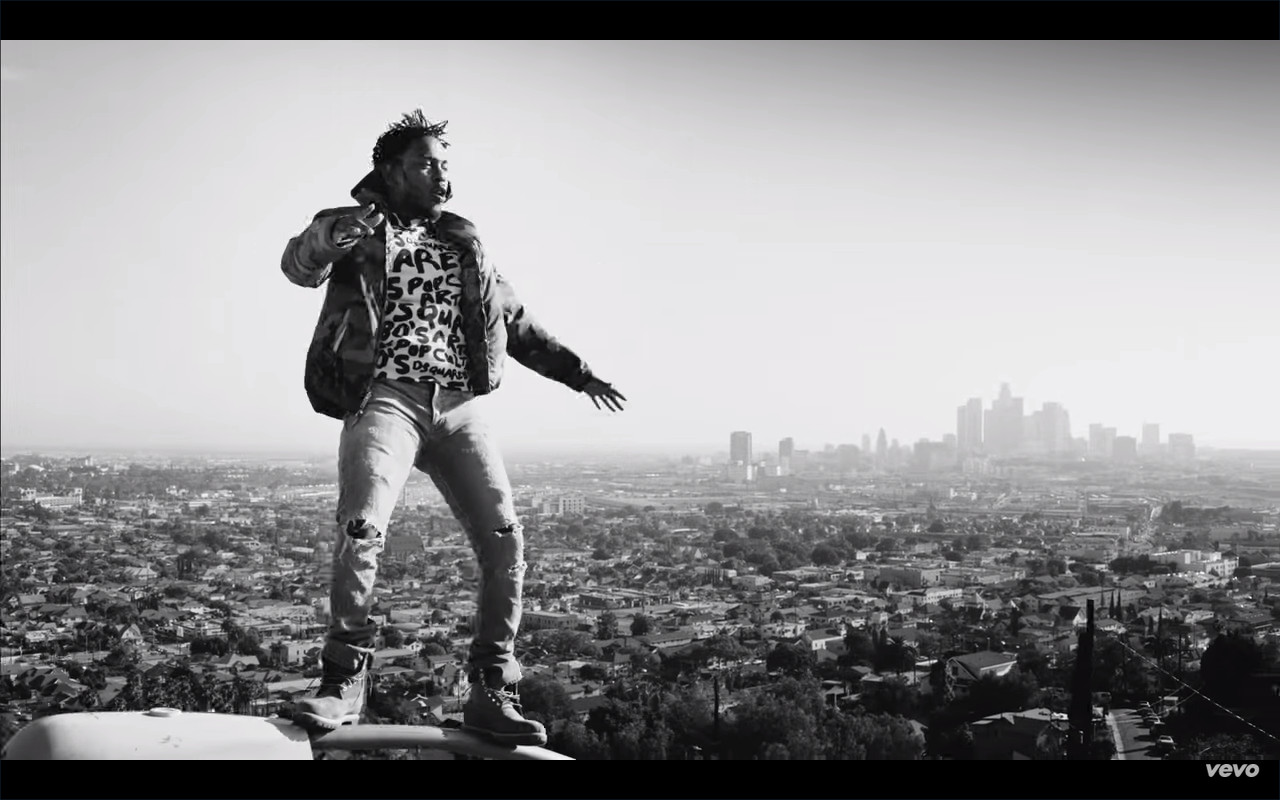 Alright music video still featuring Kendrick Lamar
Alright music video still featuring Kendrick Lamar
By beginning “Alright” with a powerful reference to Alice Walker’s seminal novel “The Color Purple” (“Alls my life I has to fight”), Lamar immediately establishes a profound statement: “Alright” is unequivocally a work of Black genius, with emphasis on the Black experience. Released as the fourth single from his critically acclaimed album “To Pimp a Butterfly,” the track transcended its musical form to become a defining protest anthem for a generation. In it, Lamar fearlessly examines the complex duality of the Black experience in America. He reportedly spent six months with the Pharrell-produced beat before finding the precise lyrics, ultimately landing on an approach he described as “uplifting but aggressive.” The song unflinchingly calls out police brutality with potent (and often tragically misunderstood) lyrics like “And we hate po-po / wanna kill us dead in the street fo sho,” while simultaneously delivering a powerful message of resilience and hope: despite systemic challenges, “we gon’ be alright.” “Alright” became a rallying cry, resonating deeply within the Black Lives Matter movement and solidifying its place as one of the best Kendrick Lamar songs.
Backseat Freestyle
One of Kendrick Lamar’s most remarkable talents is his intuitive ability to seamlessly transition between introspective flows and raw, aggressive deliveries. “Backseat Freestyle” masterfully showcases this skill, dialing up the intensity and snarl to maximum effect. Produced by Hit-Boy, the track stands out for its stripped-down, skeletal production compared to the richer soundscapes of the rest of “Good Kid, M.A.A.D. City” – it’s a stark contrast to tracks like “Bitch, Don’t Kill My Vibe.” This minimalist approach is precisely what makes “Backseat Freestyle” so impactful. Free from elaborate embellishments, the song becomes a raw and unfiltered ode to Compton, built upon the knocking clang of metallic sounds and assertive demands for respect. It’s a celebration of his hard-earned accomplishments, punctuated by the prescient acknowledgment that he can never afford to lose focus: “My mind is livin’ on cloud nine and this nine is never on vacation,” he emphatically raps.
Bitch, Don’t Kill My Vibe
 Bitch Don't Kill My Vibe music video still featuring Kendrick Lamar
Bitch Don't Kill My Vibe music video still featuring Kendrick Lamar
By the time “Bitch, Don’t Kill My Vibe,” the fifth single from Lamar’s breakthrough album “Good Kid, M.A.A.D City,” was released, he had already established his hit-making prowess with certified bangers like “Swimming Pools (Drank)” and “Backseat Freestyle,” as well as a successful collaboration with Drake on “Poetic Justice.” Originally conceived as a collaboration with Lady Gaga, the song evolved into a profound meditation on Lamar’s burgeoning status within the music industry and his evolving mindset as an artist. It serves as a powerful declaration of Lamar as an iconoclast, offering an early glimpse into the unwavering integrity and fervent passion that would ultimately set him apart from his contemporaries. “Bitch, Don’t Kill My Vibe” is a testament to maintaining artistic vision amidst rising fame, a key element of Kendrick Lamar’s artistic journey.
DNA
If there’s one consistent lesson Kendrick Lamar has taught his dedicated fanbase, it’s that he consistently demands active engagement and thought from his listeners. While he possesses the ability to effortlessly create chart-topping hits, he consistently chooses to challenge both his audience and himself with unexpected and innovative sonic explorations. As if the jazz-infused complexities of “To Pimp a Butterfly” weren’t challenging enough, “DNA” delivers another curveball within a single song. The track begins with an infectious, swampy groove that bounces along smoothly, only to gradually descend into sonic experimentation, layering disparate elements that seemingly collide and coalesce within the same musical frame. Despite the track’s sonic complexity, the lyrical content of “DNA” is remarkably clear, showcasing Lamar’s profound self-awareness and recognition of his internal conflicts even in his early career: “Realness, I just kill shit ’cause it’s in my DNA / I got millions, I got riches buildin’ in my DNA / I got dark, I got evil that rot inside my DNA / I got a troublesome heart inside my DNA.”
Euphoria
 Euphoria music video still featuring Kendrick Lamar
Euphoria music video still featuring Kendrick Lamar
While “Euphoria,” Lamar’s initial Drake diss track, might not have reached the cultural phenomenon status of “Not Like Us,” it stands as a brutally effective dismantling of the pop superstar, delivered across three progressively aggressive beat switches. The track opens with a deceptively low-key intro, laced with veiled threats and subtle jabs (“Know you a master manipulator and habitual liar too / But don’t tell no lie about me and I won’t tell truths ’bout you”), before escalating into pointed and deeply personal barbs. The accusations of absentee parenting that follow the line “I got a son to raise, but I can see you don’t know nothin’ ’bout that” are particularly cutting. Every line in “Euphoria” is designed to shock and wound, effectively setting the stage for the internet-breaking impact of “Not Like Us” that would follow. “Euphoria” is a masterclass in diss track construction, showcasing Kendrick Lamar’s lyrical precision and strategic aggression.
King’s Dead
Lamar’s curated “Black Panther” soundtrack reaches a high point with “King’s Dead,” an explosive hip-hop collaboration featuring himself, Jay Rock, and Future. While Future’s verse may deviate somewhat from the thematic and narrative threads of Ryan Coogler’s film, Lamar and Jay Rock more than elevate the track to the epic scale befitting a king, whether living or deceased. In fact, Jay Rock was so energized by the track that he made it the lead single for his subsequent album. Even within the framework of a superhero movie soundtrack, Lamar demonstrated his innate ability to conquer any creative challenge he undertakes, cementing his status as a leading voice in contemporary music.
Money Trees
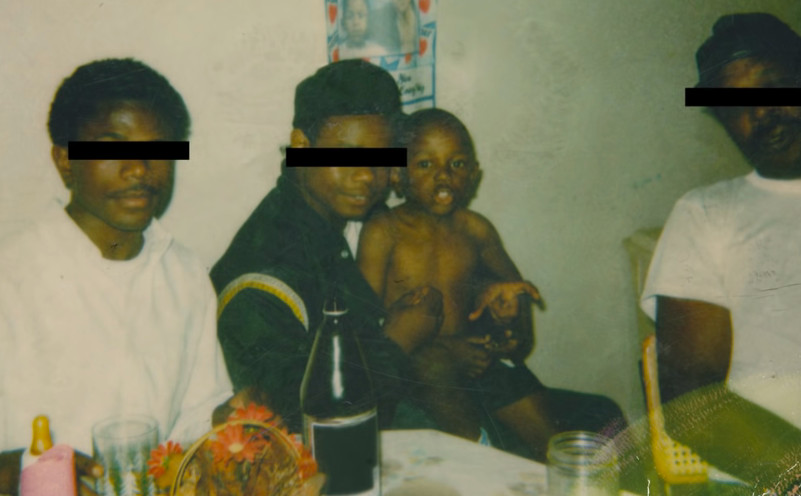 Money Trees music video still featuring Kendrick Lamar and Jay Rock
Money Trees music video still featuring Kendrick Lamar and Jay Rock
Set against a hazy, dreamlike beat crafted by DJ Dahi and Hit-Boy, Lamar delivers a captivating call-and-response flow in “Money Trees” that perfectly encapsulates the nostalgic atmosphere permeating “Good Kid, M.A.A.D City.” Deeply engrossed in both the allure of music and the harsh realities of tragedy, he seamlessly weaves in references to Usher and E-40 with the same nonchalance he observes the ever-present violence in his surroundings. The chorus delivers a profound and resonant theme for the sprawling album: “Everybody gon’ respect the shooter/But the one in front of the gun lives forever.” Jay Rock’s featured verse is also a standout moment in his career, filled with urgent rhymes about the complexities of drug dealing, rendered with such specific detail that they could serve as a blueprint for a small, albeit illicit, business venture. “Money Trees” is a quintessential Kendrick Lamar track, blending storytelling, social commentary, and musical innovation.
Not Like Us
Even before its impressive haul of five Grammy Awards, “Not Like Us” was already widely recognized as an instant classic within Kendrick Lamar’s extensive catalog of timeless hits. The track effectively targeted all the right adversaries – primarily Drake, but also resonated deeply with a fervent fanbase of West Coast hip-hop that had been yearning for a ubiquitous anthem from a hometown superstar for years. While younger artists like Shoreline Mafia and Mike Sherm had long been staples of the Downtown Los Angeles and Bay Area party scenes, “Not Like Us” filled a larger void, showcasing two acclaimed artists – Lamar and producer DJ Mustard – at the peak of their creative powers, doing what they excel at most. Built upon a foundation of aggressively syncopated rhythms, the beat is clean, minimalist, and undeniably West Coast, with Lamar rapping with feverish energy, often ahead of conventional phonetic patterns, creating that signature sound. The immense success and fresh energy of “Not Like Us” offer numerous lessons, but perhaps the most significant takeaway is the power of embracing your inner critic and channeling it into creative fuel.
Poetic Justice
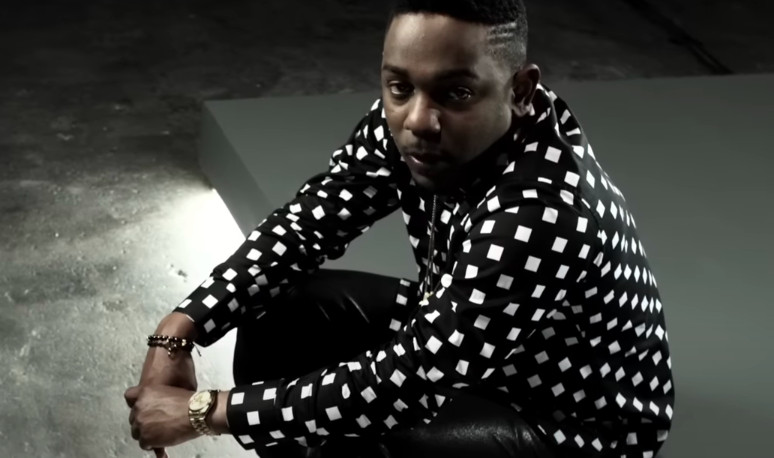 Poetic Justice music video still featuring Kendrick Lamar and Drake
Poetic Justice music video still featuring Kendrick Lamar and Drake
Built around a sample of Janet Jackson’s smooth vocals from “Any Time, Any Place,” “Poetic Justice” featuring Drake stands out as arguably the sole love song on “Good Kid, M.A.A.D City” – and it’s an exceptional one. As one of his most commercially successful tracks to date, “Poetic Justice” undeniably benefits from the timeless sensuality of Jackson’s original recording. Once listeners move past the now-complicated dynamic with Drake, it becomes clear that the two artists once shared a palpable musical chemistry. The true brilliance of the song lies in its striking and poetic one-liners – “If a flower bloomed in a dark room would you trust it?” – which elevate it beyond a simple love song into a deeper exploration of trust and vulnerability.
Rich Spirit
Anchored by a memorable chorus featuring the assertive lyric “Stop playin’ with me ‘fore I turn you to a song,” Lamar delivered a clear warning with “Rich Spirit” from “Mr. Morale & the Big Steppers.” This warning would resonate profoundly two years later with his historic and Grammy-winning feud with Drake. Simultaneously, the track feels like a pointed admonishment directed inward, particularly within the context of verses where he grapples with his accomplishments and the growing responsibilities that come with his position in the music industry. He also examines his complex relationships with an expanding circle of confidantes, collaborators, and even supposed loved ones (“And my cousin tried to sue me like he got the privilege”). Lamar notes that all these relationships are increasingly complicated and strained by the weight of his burgeoning success.
Rigamortus
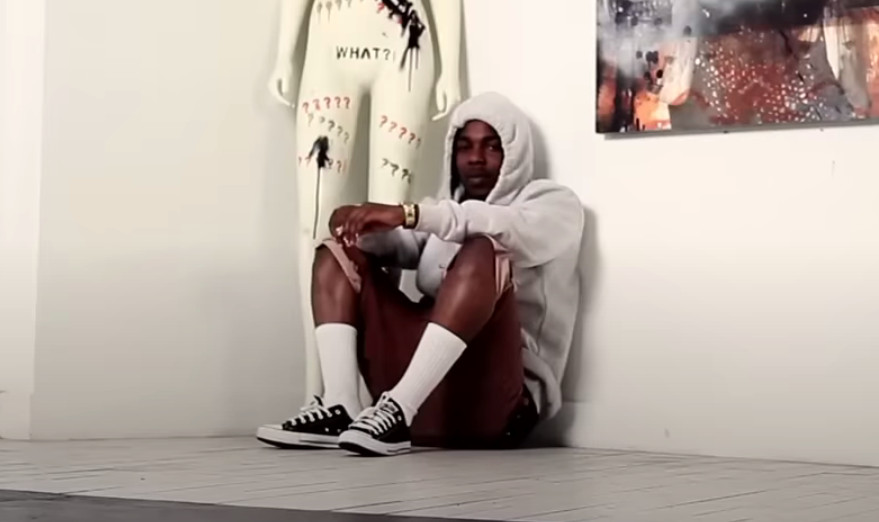 Rigamortus music video still featuring Kendrick Lamar
Rigamortus music video still featuring Kendrick Lamar
“Section.80” served as a powerful introduction to Kendrick Lamar for many who had not yet discovered the raw talent showcased in his earlier mixtape releases. His 2011 debut album solidified his foundational strengths as an emcee – equally adept at dissecting the pain and struggles of street life while also exploring the allure and pitfalls of escaping it. “Rigamortus” effectively bridges these themes by focusing intensely on Lamar’s exceptional skills as a lyricist, issuing a clear warning to his rap contemporaries that his wordplay is a force to be reckoned with. He doesn’t just state it; he demonstrably proves it, showcasing his lyrical dexterity as he effortlessly glides across the horn-driven instrumental, masterfully manipulating double and triple meter while firing off warning shots at every turn. If there ever was a definitive starting point for Lamar’s ascendance, “Rigamortus” undeniably played a crucial role in drawing that line.
Swimming Pools (Drank)
Lamar was still a relatively new artist, making his Interscope Records debut, when he released “Swimming Pools (Drank),” a seemingly celebratory party anthem with introspective undertones. In this track, Lamar tackles the serious issue of alcohol abuse through rhyme, and in retrospect, the song serves as a clear and insightful precursor to Lamar’s widely recognized politically charged approach to rap music. From the outset, he vividly establishes the seductive allure of alcohol – “Some people like the way it feel / Some people wanna kill their sorrows / Some people wanna fit in with the popular” – only to introduce a stark warning from his own conscience midway through the song. By the conclusion of “Swimming Pools (Drank),” Lamar has skillfully woven a cautionary tale that is deeply personal yet also broadly representative of a destructive cycle of violence and escapism prevalent in communities like Compton.
TV Off
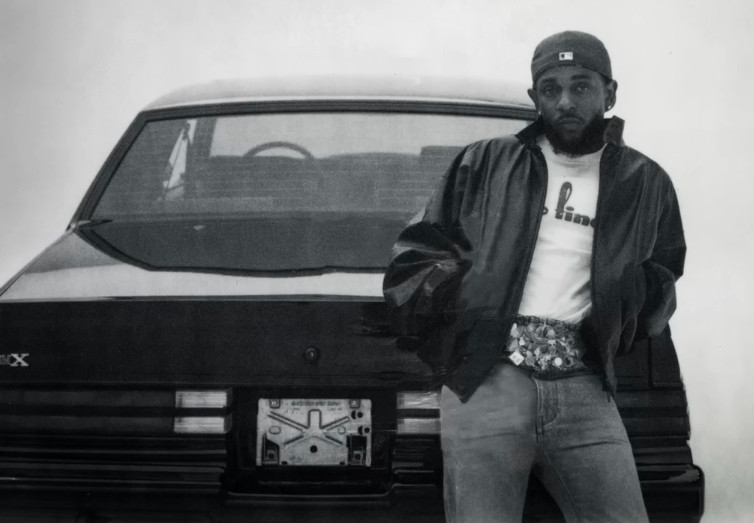 TV Off music video still featuring Kendrick Lamar and DJ Mustard
TV Off music video still featuring Kendrick Lamar and DJ Mustard
While “TV Off” takes a more lighthearted approach and is less lyrically dense than much of what we’ve come to expect from the Pulitzer Prize-winning artist, it remains an undeniably irresistible and catchy victory lap of a song. Opening with a sample from MacArthur Park’s “Monk Higgins,” Lamar ignites a call to action against conformity, urging listeners to “turn the TV off” as a means of resisting unconscious influence and societal pressures. From its triumphant horn section to the instantly meme-able ad-libs “Mustaaaaaaaaaard!” and “Crazy, scary, spooky, hilarious,” Lamar builds upon the massive success of “Not Like Us” with another classic DJ Mustard production. “TV Off” showcases Kendrick Lamar’s versatility, demonstrating his ability to create both profound and purely enjoyable music.
untitled 05 | 09.21.2014.
Lamar’s lyrical craftsmanship is razor-sharp on “untitled 05 | 09.21.2014.,” a bleak and unflinching lament on class disparities and desperation. In the opening verse, his character is depicted at the absolute end of his rope (“Once upon a time I used to go to church and talk to God / Now I’m thinkin’ to myself, hollow tips is all I got”) and commits a shocking act of violence, all set against a backdrop of a jazzy chorus sung by Anna Wise and a subtly creeping bassline from Thundercat. Lamar’s vocal delivery is raw and emotionally charged, and the subsequent verses featuring Punch and Jay Rock only amplify the track’s intense atmosphere. Lines like “Justice ain’t free, therefore justice ain’t me / So I justify his name on obituary” are particularly impactful and resonate as precise throughlines within Lamar’s broader narrative storytelling, especially considering they appear on a collection of demo tracks.
XXX
In “XXX,” Lamar fearlessly tackles the complexities of the American Dream and the role of religion in contemporary society. Adapting his flow to seamlessly align with several distinct beat variations within the track, the latter half of the first verse finds Lamar rapping at a breathless pace, addressing the futile nature of offering comfort to a friend whose child was senselessly killed over money: “‘I can’t sugarcoat the answer for you, this is how I feel / If somebody kill my son, that mean somebody gettin’ killed,” he raps, as the ominous sound of police sirens threatens to overwhelm the beat. The song then abruptly shifts to a smoother, jazz-infused vibe, with Kendrick’s verse interacting with the thematically relevant vocals of Bono from U2. Big ideas and weighty observations arrive in a torrent: “It’s murder on my street, your street, back streets, Wall Street / Corporate offices, banks, employees, and bosses with / Homicidal thoughts, Donald Trump’s in office.” “XXX” is a sprawling and ambitious track, solidifying its place among the Best Of Kendrick Lamar Songs.

